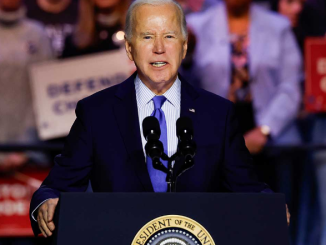

A new survey of Fortune 1000 companies reveals that corporations are dramatically scaling back their public expressions of support for the LGBTQ+ community. It’s a trend LGBTQ+ organizations across the country have already reported in the lead-up to Pride celebrations this year.
{snip}
Among 49 Fortune 1000 executives surveyed, those who said they were scaling back financial and public support cited pressure from conservative activists and the president, whose executive orders have gutted diversity, equity, and inclusion initiatives and targeted the transgender community, Forbes reports.
Of those, nearly half said they would reduce public-facing support, including a visual presence and sponsorship of Pride celebrations, Pride-specific merchandise lines, social media branding, and partnering with influencers for Pride-themed sponsorships.
{snip}
One unnamed corporate executive said their company would reduce Pride Month support on social media to “minimize public visibility that could trigger attention.” Another big brand leader said their company has “reduced risk across all heritage month events” by “focusing internally and doing what’s right for our people and not necessarily shouting to the world about it.”
{snip}
St. Louis Pride said Anheuser-Busch, a 30-year sponsor of their hometown city’s Pride celebrations, withdrew all support this year following a boycott of the company over their association with trans influencer Dylan Mulvaney. The company’s sales of Bud Light dropped 26% amid the backlash.
The beer brewer dropped San Francisco Pride, as well, joining previous sponsors Comcast and alcoholic beverage company Diageo. The withdrawals add up to $200,000 in lost funding for one of the largest Pride celebrations in the country.
{snip}
Target’s foot traffic has been down for 11 straight weeks following the decision, according to Retail Brew.
In recent years, right-wing media figures have said that they wish to make the LGBTQ+ community “toxic” to companies. Right-wingers have also led efforts to get companies to roll back their own DEI commitments.
* Original Article:


